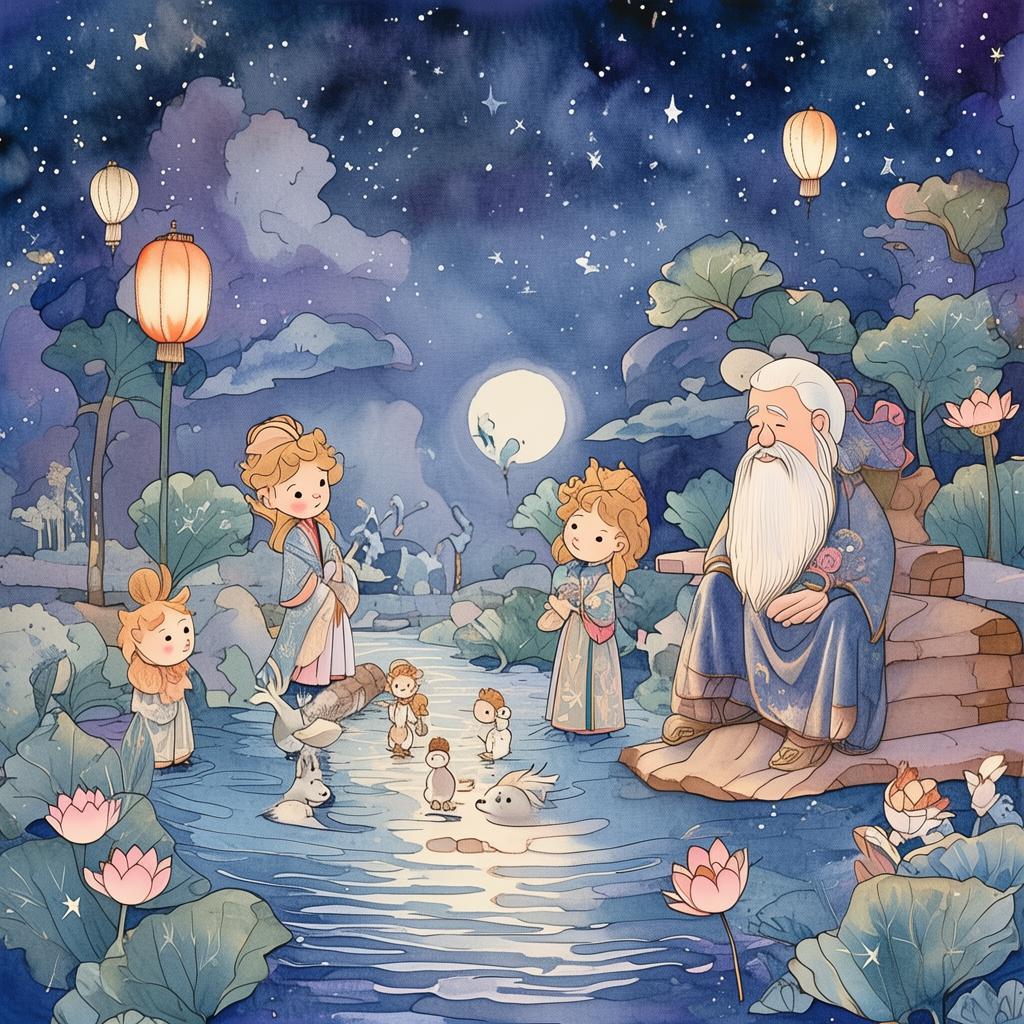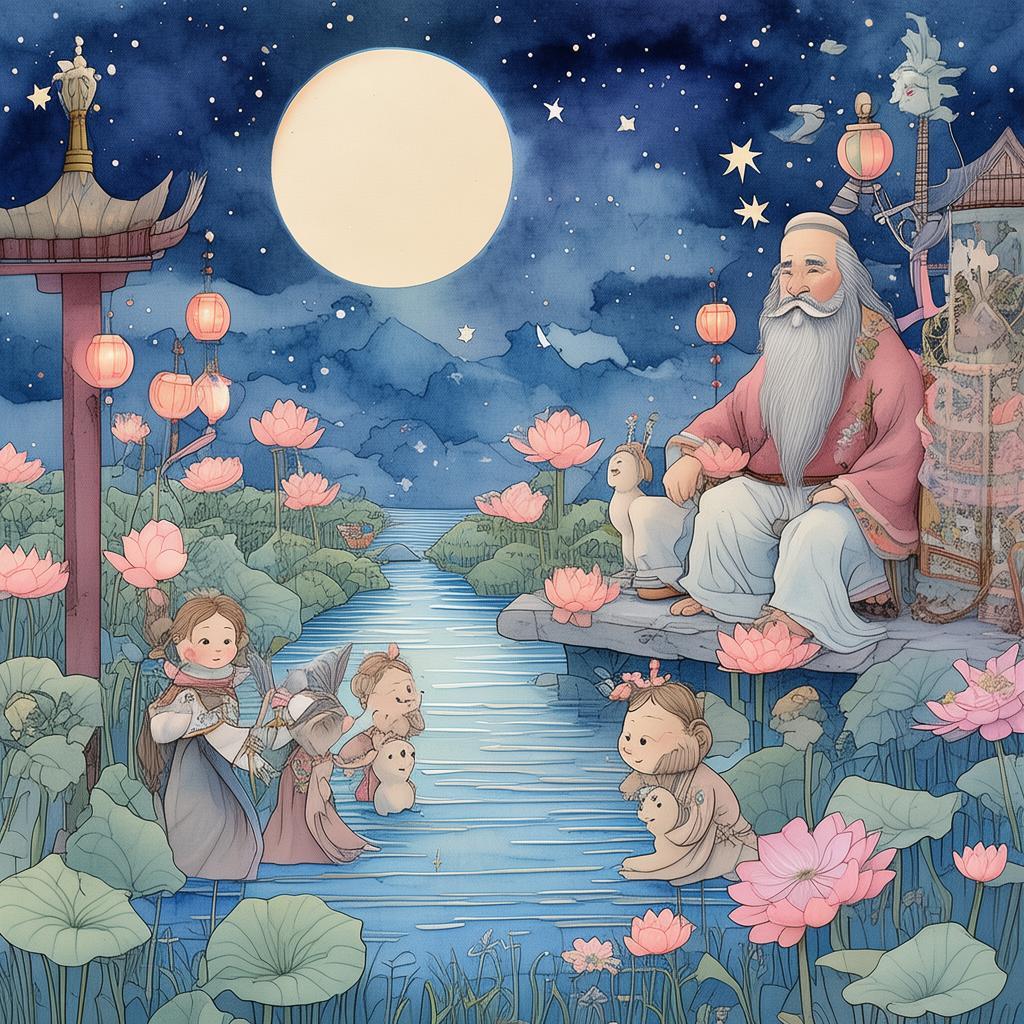The Labyrinth of Dreams: A Projectionist's Paradox
In the heart of a quaint, forgotten town, there stood an old cinema, its marquee flickering with the promise of wonder. Inside, the Projectionist, a man known only by the name of Elion, lived a life of shadows and silent whispers. His days were spent in the dimly lit booth, his fingers dancing across the projector's controls, casting the world of dreams onto the vast canvas of the screen.
Elion had always been a man of few words, preferring the language of light and shadow to the spoken word. His life was a silent ballet, and he had become the town's silent guardian of stories, a Projectionist whose films were as much a part of the town's history as the cobblestone streets that wound through it.
One fateful evening, as the sun dipped below the horizon, casting a golden glow over the town, Elion noticed something strange. In the corner of the booth, where the old film reels were stored, there was a small, ornate box, its surface etched with symbols that seemed to dance with an ancient allure. Curiosity piqued, he reached out and opened the box, revealing a key with a peculiar, twisted design.
As he inserted the key into a hidden lock on the side of the booth, the walls of the cinema began to shimmer, and a door creaked open, revealing a dark passageway. Elion's heart raced as he stepped through, the air thick with anticipation. The passageway led him to a vast, empty room, the walls adorned with mirrors that reflected an endless maze.
In the center of the room stood a pedestal, upon which rested a small, ornate globe. As Elion approached, the globe began to spin, and with each turn, the mirrors around him seemed to change, shifting and bending reality itself. He reached out, his fingers brushing against the surface of the globe, and suddenly, he was no longer in the cinema.
He found himself in a world of dreams, a place where the rules of reality were as fluid as the clouds in the sky. The Projectionist realized that the globe was a key to the labyrinth of dreams, a place where the boundaries between the real and the imagined were as thin as a whisper.
In this dream world, Elion encountered a myriad of characters, each with their own story and purpose. He met the Dreamer, a woman who could see the future in the patterns of the clouds, and the Night Watchman, a guardian of the dreams who protected the sleeping from the nightmares that lurked just beneath the surface.
As Elion ventured deeper into the labyrinth, he discovered that his own dreams were intertwined with the lives of those around him. The dreams he projected onto the screen were not just stories for the audience; they were reflections of the town's collective consciousness, the hopes, fears, and desires of its people.
One night, as he projected a film about a lost child, Elion felt a profound connection to the story. The child in the film was his own daughter, lost to him years ago in a tragic accident. The dream was a message, a whisper from the universe, urging him to find his daughter.

Determined to unravel the mystery, Elion followed the trail of clues left by the Dreamer and the Night Watchman. He navigated through the labyrinth, facing trials that tested his courage, his resolve, and his love. Each step brought him closer to the truth, but also to the realization that the labyrinth was a metaphor for the human heart, a place where the deepest fears and desires resided.
The climax of Elion's journey came when he reached the heart of the labyrinth, a chamber filled with mirrors that reflected the dreams of every person who had ever walked through the cinema. In the center of the room stood a figure, shrouded in shadows, who revealed himself to be the Projectionist's Paradox, the guardian of the labyrinth.
The Paradox explained that Elion's dreams were not just reflections of the town's collective consciousness; they were also reflections of his own soul. The Projectionist's Paradox had chosen Elion to become the Projectionist, to bring the dreams of the town to life, and to use his power to heal the wounds of the past.
With this newfound understanding, Elion made a choice. He decided to use his power to project not just stories, but hope and healing into the lives of the people he loved. He reached out to the globe, and as he did, the mirrors around him began to shatter, revealing the true nature of the labyrinth.
Elion found himself back in the cinema, the walls and mirrors returning to their normal state. He knew that the labyrinth was a dream, a reflection of his own mind, but he also knew that the journey had changed him forever.
As he returned to his duties, Elion projected a new film, one that told the story of a town that had found its way back to hope and happiness. The audience watched, their eyes wide with wonder, and Elion knew that he had found his purpose.
The Labyrinth of Dreams: A Projectionist's Paradox was not just a story; it was a lesson in the power of choice, the importance of healing, and the beauty of dreams. And as the lights dimmed and the film began to play, Elion knew that he had become more than just a Projectionist; he had become the keeper of dreams, the guardian of the labyrinth, and the heart of the town.
✨ Original Statement ✨
All articles published on this website (including but not limited to text, images, videos, and other content) are original or authorized for reposting and are protected by relevant laws. Without the explicit written permission of this website, no individual or organization may copy, modify, repost, or use the content for commercial purposes.
If you need to quote or cooperate, please contact this site for authorization. We reserve the right to pursue legal responsibility for any unauthorized use.
Hereby declared.









